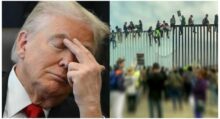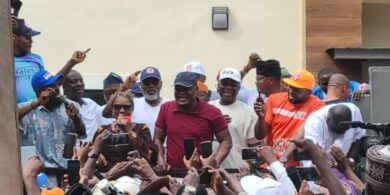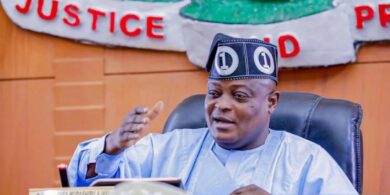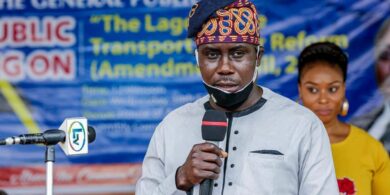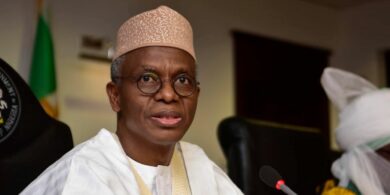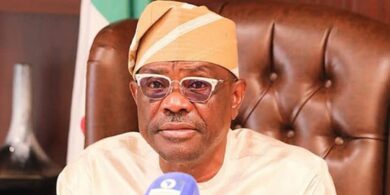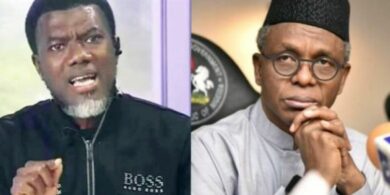INEC proposes ban on politicians carrying large sums of cash on election day

The Independent National Electoral Commission (INEC) has urged the National Assembly to enforce stricter regulations prohibiting individuals from carrying large amounts of cash at polling stations.
This proposal aims to combat vote-buying and other electoral malpractices.
According to reports, during a consultative meeting in Abuja over the weekend, INEC’s Director of Litigation and Prosecution, Tanimu Muhammed, SAN, raised serious concerns about the growing problem of vote-buying, which he described as a significant threat to Nigeria’s democratic integrity.
The meeting, organized by the Joint Senate and House of Representatives Committees on Electoral Matters in collaboration with the Policy and Legal Advocacy Centre (PLAC) and supported by the UK Foreign, Commonwealth, and Development Office (FCDO), provided a platform for stakeholders to discuss electoral security and necessary legal reforms.
Muhammed noted that politicians often justify carrying large sums of cash on election day by citing payments for party agents and logistics. However, he warned that the unrestricted movement of cash at polling stations has fueled vote-buying and compromised the credibility of elections. To address this, he proposed a limit of ₦50,000 per individual at polling locations.
“Vote-buying remains one of the greatest threats to credible elections in Nigeria. We need laws that not only criminalize this practice but also implement preventive measures,” Muhammed stated.
INEC also called on lawmakers to address loopholes that allow political actors to exploit the system.
In addition to concerns over vote-buying, INEC officials reiterated their longstanding request for the establishment of an Electoral Offenses Commission. They argued that INEC lacks the necessary authority and resources to effectively prosecute election violators.
“Creating an Electoral Offenses Commission would ensure that crimes like vote-buying and ballot-snatching are met with swift legal action,” Muhammed added.
Ondo Resident Electoral Commissioner, Oluwatoyin Babalola, emphasized that limiting cash transactions at polling units would make it harder for politicians to sway voters with financial incentives.
“Setting a cash limit would give security agencies clearer enforcement guidelines, making it easier to identify and penalize electoral offenses,” she explained.
Security agencies present at the meeting reaffirmed their commitment to ensuring free and fair elections but acknowledged significant logistical challenges.
The Commissioner of Police in charge of election planning and evaluation, Abayomi Shogunle, representing the Inspector General of Police, highlighted the difficulties law enforcement faces during elections.
“We struggle with logistics, from deploying officers to remote areas to maintaining real-time communication on election day. These issues must be addressed for us to enforce electoral laws effectively,” Shogunle stated.
Despite these obstacles, security agencies pledged to remain neutral and professional in their electoral duties.
In response to INEC’s concerns, the Chairman of the House Committee on Electoral Matters, Hon. Adebayo Balogun, assured stakeholders that their recommendations would be considered in upcoming electoral reforms. He confirmed plans to replace the 2022 Electoral Act with a revised version in 2025, addressing gaps exposed during the 2023 elections.
“The 2022 Electoral Act was a major step forward, but its implementation revealed areas that need improvement. We are committed to strengthening our electoral laws to align with the realities of our democracy,” Balogun stated.
He stressed the importance of raising awareness among political parties, INEC officials, and civil society organizations about the dangers of vote-buying and the urgent need for legislative reforms.
“Nigerians deserve a credible electoral process. Our laws must be strong not just in theory but also in enforcement,” he added.
Similarly, Senate Chairman on Electoral Matters, Senator Sharafadeen Alli, acknowledged that while the 2022 Electoral Act was initially seen as comprehensive, its practical application had exposed shortcomings that require urgent correction.
“This meeting is a step towards strengthening our electoral system. The reforms we propose must reflect lessons learned from past elections and ensure that our democracy continues to evolve positively,” Alli said.



